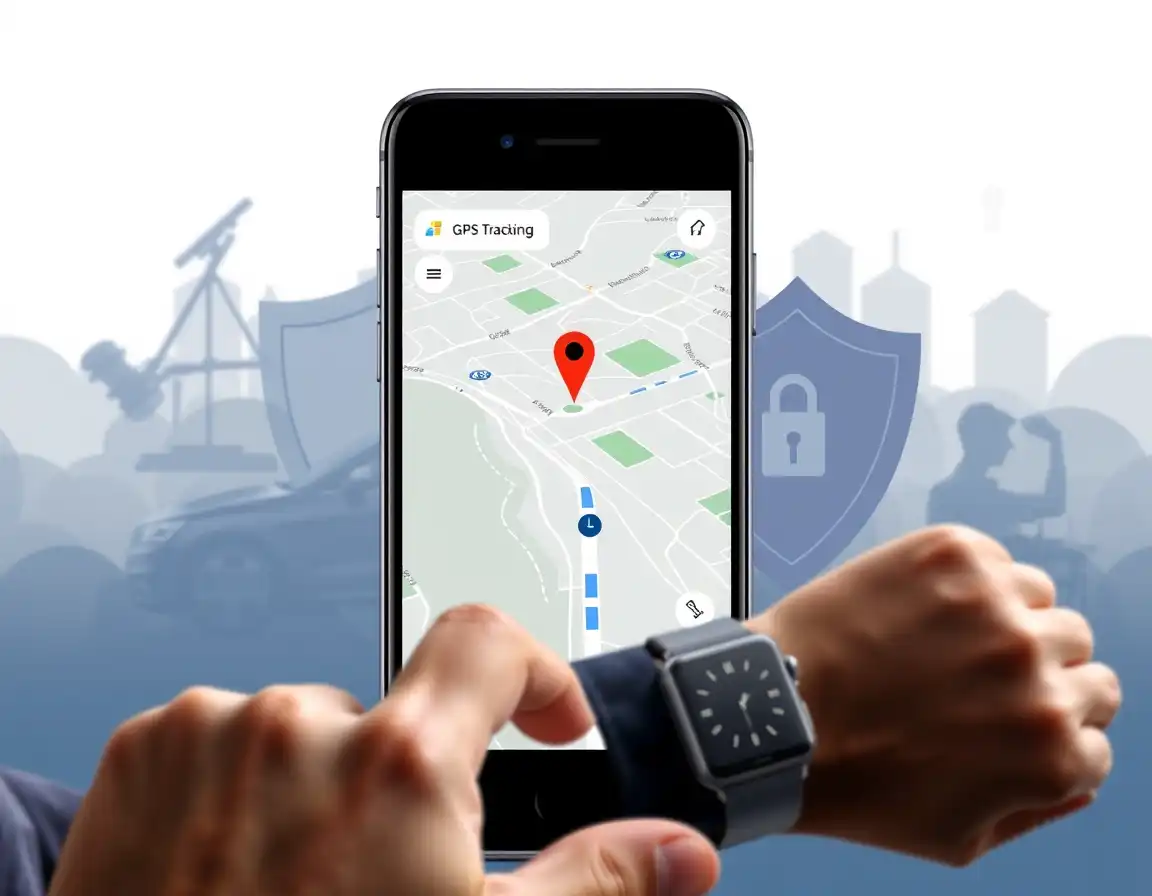What Is GPS Tracking and How Does It Work?
GPS tracking is a technology of locating an individual or a vehicle or a thing with the help of the global positioning system (GPS). GPS equipment transmits on a system of satellites circulating in the atmosphere and calculates the exact position in real time on the basis of triangulation. Such systems are largely deployed in smartphones, automotive route guidance and wearable technology.
Even though GPS tracking is useful in locating directions or tracking delivery trucks, it has legal and ethical issues that cannot be ignored. What many people do not yet know is how much their movement is contained as tracked by applications and gadgets. You should know how exactly GPS works to ensure that you take care of your location data and know when it is used correctly.
Can You Track Someone by Phone Number Legally?
One of the questions that people frequently ask is how to find the position of someone using a phone number and the most essential thing is whether it is legal. The brief response: You cannot in the majority of the cases track somebody with the help of the phone number, without having their permission. This can be against the laws of privacy especially when you do it through other apps or utilize spoofing techniques without the knowledge of the person.
The police, according to the law, can trace the position of a person by use of their phone number, but only when there is a warrant or court order. In ordinary citizens, the legal tracking is typically confined to parents keeping a track of their own kids or boss keeping a track of the devices owned by the corporation with explicit permission. Tracking of someone without their permission can lead to criminal or civil punishment.
Understanding GPS Tracker Chips and Tracking Devices
There are tracker chips and GPS tracking gadgets used in cars, pets, phones and can even be used in personal possessions. A very tiny electronic chip fixed in something or some technology can be used to continuously update location and this chip is called GPS tracker chip. Such chips are beneficial in security, tracking of assets and navigation though they should be used within legal limits.
The phones, wearable technology, and smart watches can have tracking chips inserted in them. These technologies, although convenient, have dangers associated with them. When you have such devices in use (ex: Personal or Business use), you should inform tracking to escape legal charges. The hidden application, e.g., installation of a tracker on the car or in a bag without the owner’s consent, may be considered as the invasion of privacy or stalking.
Car Navigation and GPS Tracking Systems Explained
Present cars are fitted with car tracking and navigation devices. These systems are based on GPS which can do the following: assist the drivers to travel the most efficient route, prevent traffic, and provide the real-time location services. Besides individual ownership, the car tracking systems are used by companies to track fleet performance, environmental behavior as well as delivery services.
Deploying GPS in motor vehicles is normal, except that when it comes to tracking employees, or spying it becomes a lot more complex. Depending on the state, an employer is required to disclose the fact that their company car undergoes tracking. Equally, it is even illegal to install a GPS device tracking unit on a vehicle that does not belong to the individual without his or her consent particularly in the event that the victim is the owner of the vehicle.
Legal Limits on Tracking Devices and Location Monitoring
Although tracking with GPS may provide security and convenience, there are legal boundaries to its applications. In the majority of the states of the U.S., unauthorized tracking is viewed as an infringement of the right to privacy. Keep in mind that watching a person, whether a spouse, partner, employee or even a stranger without his or her authorization might be considered as a crime. Significant legal restrictions are:
- It is illegal to mount a GPS tracker on a personal automobile of another person without his/her consent.
- Employers are required to inform the employees whether certain devices or vehicles provided by the company to employees are being tracked or not.
- Keeping a track of your children is not a crime, but after a particular age, a specified age (usually the 18 years), things can go a bit differently.
- Spying apps that take phone information without the person’s permission are likely to be regarded as spyware and be prohibited.
Also, depending on the circumstances and intent, the consequences of the violation of the laws on tracking may be misdemeanor charges or felony charges. Should the target of tracking perceive it as a threat or that he or she is being harassed, they can lodge restraining orders and the perpetrator can be sued on grounds of infliction of emotional distress or intrusion of privacy. Thus, it is essential to learn more about the rules of both state and federal laws concerning tracking before performing such an action with any location-monitoring software.
It may be necessary that you hire a legal professional when you are not sure whether tracking is legal in your case to prevent a case of criminal offense or lawsuits.
When Does GPS Tracking Become Illegal?
The criminality of the tracking by the GPS occurs when such tracking is against the wish of the person, when it breaks the laws of privacy or it is done with bad motives. The police will be ready to arrest even when the reason appears well founded; ( example of catching a cheating partner or defending a loved one). The right of privacy of individuals takes precedence before the law. Considering an example of attaching a tracker covertly to the vehicle of a partner, it may be regarded as stalking or harassment that breaks the state laws.
To add, employing untrustworthy apps to access the location of an individual or information on his or her phone without consent would be against federal and state wire tapping or cyber security laws. As a rule, keep track of the legal limits. Consent is essential, otherwise the occurrence of the tracking might lead to the penal or civil penalty system or protective lawsuits against you.
Conclusion
Although tracking of GPS and location monitoring can be of practical benefits, they should be approached responsibly and without legal breaches. It does not matter whether you are thinking of tracking someone with a GPS tracker chip, or car navigation system, or you want to know how to trace someone using a phone number, as you realize, your rights matter.
Determination of the legitimacy of a specific practice of GPS tracking definitely depends on three important principles: consent, disclosure, and purpose. In case of doubt, one should refer to a legal consultation in advance before attempting digital pursuits of sorts in surveillance.





